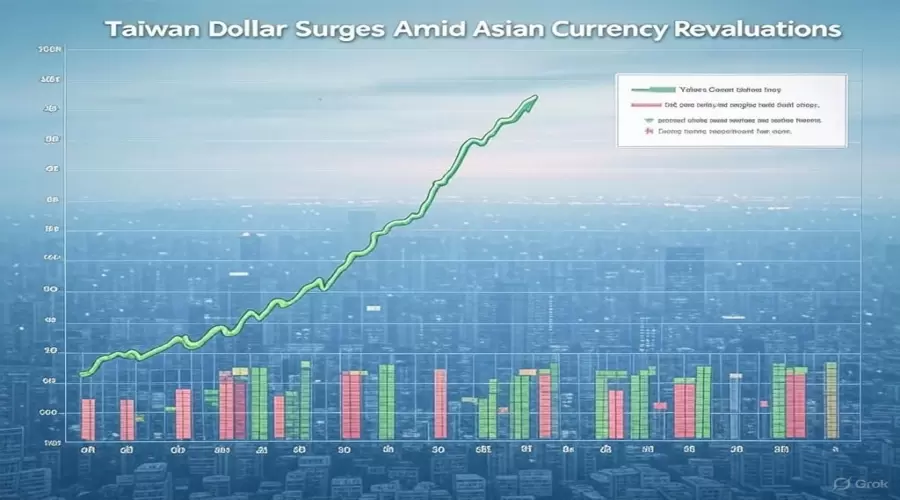
In early May 2025, the New Taiwan Dollar (TWD) experienced its most significant surge in over three decades, appreciating nearly 10% against the U.S. dollar within a few days. This unprecedented movement has sent ripples through global financial markets, raising questions about the underlying causes and potential implications for Taiwan's economy and beyond.
Factors Driving the Surge
Several elements have contributed to the TWD's rapid appreciation:
Speculation on Trade Negotiations: The conclusion of U.S.-Taiwan trade talks sparked speculation that Taiwan might be allowing its currency to strengthen as part of trade concessions. While Taiwan's central bank has denied any such agreements, market participants remain skeptical.
Capital Inflows: Taiwan's robust technology sector, particularly its semiconductor industry, continues to attract significant foreign investment. The global demand for advanced chips has positioned Taiwan as a critical player, leading to increased capital inflows and bolstering the TWD.
Unhedged Foreign Investments: Taiwanese life insurers hold substantial foreign assets, including U.S. Treasury securities. Due to high hedging costs, many have reduced their currency protection, making them more susceptible to exchange rate fluctuations. The sudden appreciation of the TWD has amplified these exposures.
Impact on Taiwan's Economy
The TWD's surge has multifaceted implications:
Export Competitiveness: A stronger TWD makes Taiwanese exports more expensive on the global market, potentially affecting the competitiveness of its vital electronics and semiconductor sectors.
Financial Sector Strain: Life insurers and other financial institutions with significant unhedged foreign investments face potential losses due to the currency mismatch between their assets and liabilities.
Stock Market Volatility: The rapid currency appreciation has unsettled investors, leading to declines in Taiwan's stock indices, particularly in sectors sensitive to exchange rate movements.
Regional and Global Repercussions
Taiwan's currency movements have influenced broader Asian markets:
Asian Currency Strength: The TWD's rise has coincided with appreciations in other Asian currencies, such as the Japanese yen and the Australian dollar, reflecting a regional trend of strengthening currencies against the U.S. dollar.
Central Bank Interventions: In response to their currencies' appreciations, some Asian central banks, like Hong Kong's Monetary Authority, have intervened to maintain currency stability and protect economic interests.
The New Taiwan Dollar's dramatic appreciation in May 2025 underscores the complex interplay of trade dynamics, capital flows, and investor sentiment in today's interconnected global economy. While Taiwan's central bank maintains that the surge is market-driven, the broader implications for trade competitiveness, financial stability, and regional currency alignments warrant close monitoring by policymakers and investors alike.
Aliqu justo et labore at eirmod justo sea erat diam dolor diam vero kasd
Welcome to Articles Webhunk, your go-to source for trending news, insightful articles, and expert opinions across various topics. Stay updated with the latest in business, technology, lifestyle, and more!
Learn More About Us© Copyright 2024 - Articles Webhunk. All Rights Reserved.